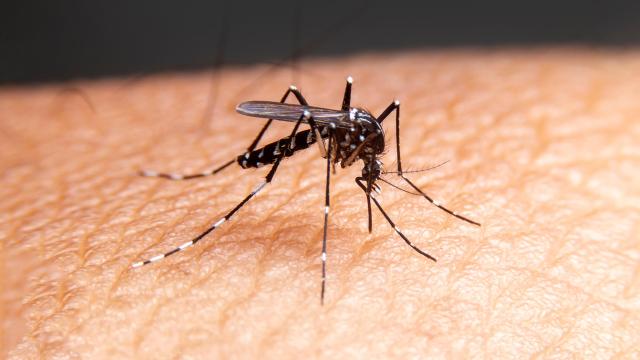Mosquitos and the humans they feed on seem to have something in common: a discerning palate for soap. In a new study this week, scientists have found that female, blood-sucking mosquitos are drawn to certain kinds of soaps commonly used by people while repelled by others, though sometimes in unexpected ways. The findings might eventually help us develop better mosquito repellants.
No animal is deadlier to humans than the mosquito, thanks to the many germs it can carry. All told, upwards of a million deaths are attributed annually to mosquito-borne diseases such as malaria. But it’s long been clear that these insects are not equal-opportunity pests. According to study author Clément Vinauger, a biochemist and geneticist at Virginia Tech, roughly 20% of potential human hosts are thought to account for about 80% of mosquito-borne disease transmission in an area.
“In this context, it is critical to understand what makes mosquitoes bite some individual hosts more than others,” Vinauger told Gizmodo in an email.
Some studies have already identified chemicals in our body odor that are appealing to the mosquitoes that feed on us. But there hasn’t been as much work looking at how the smells we add to ourselves can affect mosquito attraction. Female mosquitoes are well-known for being the ones that feed on animal blood, but just like male mosquitoes, they also feed on nectar. Because of that, it’s possible that some smells that are common to soap could change their human feeding habits.
“In particular, we like to scent our soaps with chemicals typically associated with the pleasant scent of flowers and plants. But mosquitoes also use plant-emitted volatiles to find them and obtain sugars from their nectar,” Vinauger explained. “So, we suspected that adding these chemicals to our body odor would affect their attraction, in one way or another. But this had to be tested experimentally.”
The team recruited four human volunteers for their experiments. First, they identified each person’s unique smell signature. Then they had them wash up with four soap brands: Dial, Dove, Native, and Simple Truth. Finally, the scientists exposed female Aedes aegypti mosquitoes — prolific disease carriers — to fabrics worn by the volunteers when they were unwashed or washed. Overall, the team found clear differences in mosquito preferences before and after the soaping up, though to varying degrees across the brands and volunteers.
“Our main results were that indeed, applying soap to our skin drastically changes the way we smell, in particular by adding a lot of plant-emitted chemicals to the composition of our body odor,” Vinauger said. “Our work also revealed the importance of the interaction between the specific soap chemicals and the body odor of each specific individual in determining whether a person would become more or less attractive to mosquitoes after applying soap to their skin.”
In only some volunteers, for instance, the mosquitoes became more attracted to their scent after they washed with Dove and Simple Truth brand soap, while Native brand soap was more consistently repellent to them.
The team also identified potential chemicals in these soaps that seemed to be the most responsible for attracting or repelling the bugs. Out of these candidates, it was a coconut-scented chemical that appeared to be the most effective at keeping mosquitoes away. Their findings were published Wednesday in the journal iScience.
This is only a single study based on a relatively small sample size, so its results should be taken with caution until they can be replicated. The study also didn’t look at another important aspect of mosquito attraction: the carbon dioxide we exhale. But the team hopes to obtain funding to conduct larger studies that can test a wider range of soaps and volunteers while addressing other important questions, such as the typical length of any soap-related effect.
Provided this research continues to pan out, it could very well someday lead to the development of mosquito-proof soaps or other important applications.
“Research in this area could indeed lead to informing the cosmetic industry on particular combinations of chemicals that lead to soaps that are still pleasant to our nose, but repel mosquitoes,” Vinauger said. “Understanding the chemical rules behind these effects could also inform the design of baits to lure mosquitoes and trap them for control purposes.”
